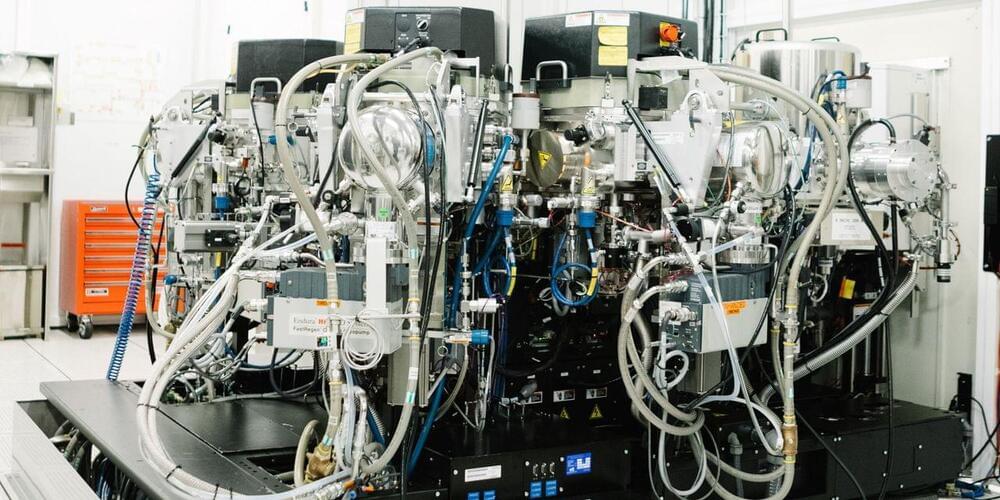TSMC’s board has approved its new $7 billion fab in Japan, which the company will partner with Sony on. The fab will focus on older 22nm and 28nm chips, with production set to begin in 2024.



UC Berkeley physicist Norman Yao first described five years ago how to make a time crystal—a new form of matter whose patterns repeat in time instead of space. Unlike crystals of emerald or ruby, however, those time crystals existed for only a fraction of a second.
But the time has arrived for time crystals. Since Yao’s original proposal, new insights have led to the discovery that time crystals come in many different forms, each stabilized by its own distinct mechanism.
Using new quantum computing architectures, several labs have come close to creating a many-body localized version of a time crystal, which uses disorder to keep periodically-driven quantum qubits in a continual state of subharmonic jiggling—the qubits oscillate, but only every other period of the drive.

By Jeremy Batterson 11-09-2021
The equivalent of cheap 100-inch binoculars will soon be possible. This memo is a quick update on seven rapidly converging technologies that augur well for astronomy enthusiasts of the near future. All these technologies already exist in either fully developed or nascent form, and all are being rapidly improved due to the gigantic global cell phone market and the retinal projection market that will soon replace it. Listed here are the multiple technologies, after which they are brought together into a single system.
1) Tracking.
2) Single-photon image sensing.
3) Large effective exit pupils via large sensors.
4) Long exposure non-photographic function.
5) Flat optics (metamaterials)
6) Off-axis function of flat optics.
7) Retinal projection.
1) TRACKING: this is already being widely used in so-called “go-to” telescopes, where the instrument will find any object and track it, so Earth’s rotation does not take the object viewed out of the field of vision. The viewer doesn’t have to find the object and doesn’t have to set up the clock drive to track it. Tracking is also partly used in image stabilization software for cameras and smart phones, to prevent motion blurring of images.
2) SINGLE-PHOTON IMAGE SENSORS, whether of the single-photon avalanching diode type, or the type developed by Dr. Fossum, will allow passive imaging in nearly totally dark environments, without the use of IR or other illumination. This new type of image sensor will replace the monochromatic analogue “night-vision” devices, allowing color imaging at higher resolution than they can produce. Unlike these current devices, such sensors will not be destroyed by being exposed to normal or high lighting. Effectively, these sensors increase the effective light-gathering power of a telescope by at least an order of magnitude, allowing small telescopes to see what observatory telescopes see now.
3) EXIT PUPIL: The pupil of the dark-adapted human eye is around 7mm, which means light exiting a telescope must not have a wider-cross axis than this, or a percent of the light captured by the objective lens or mirror will be lost. If the magnification of a system is lowered, to give brighter images, this is limited by this roadblock. This is a well-known problem for visual astronomers. Astro-photographers get around this by two tricks. The first is to use a photographic sensor wider than 7mm, allowing a larger exit pupil and thus brighter images. A 1-inch sensor or photographic plate, for example, already allows an image thirteen times brighter than what a 7mm human pupil can see.
4) LONG EXPOSURE: The other trick astro-photographers use is to keep the shutter of their cameras open for longer periods, thus capturing more light, and allowing a bright image of a faint object to build up over time. As a telescope tracks the stars–so that they appear motionless in the telescopic view–this can be done for hours. The Hubble Space Telescope took a 100 hour long-exposure photograph leading to the famous “deep field” of ultra-faint distant galaxies. An example of a visual use of the same principle is the Sionyx Pro camera, which keeps the shutter open for a fraction of a second. If the exposures are short enough, a video can be produced which appears brighter than what the unaided eye sees. Sionyx adds to this with its black-silicon sensors, which are better at retaining all light that hits them. For astronomy, where stellar objects do not move and do not cause blurring if they are tracked, longer exposures can be created, with the image rapidly brightening as the viewer watches. Unistellar’s eVscope and Vaonis’s Stellina telescope, already use this function, but without an eyepiece. Instead, their images are projected onto people’s cell phones or other viewing devices. However, most astronomers want to be able to see something directly with their eyes, which is a limiting point on such types of telescopes.
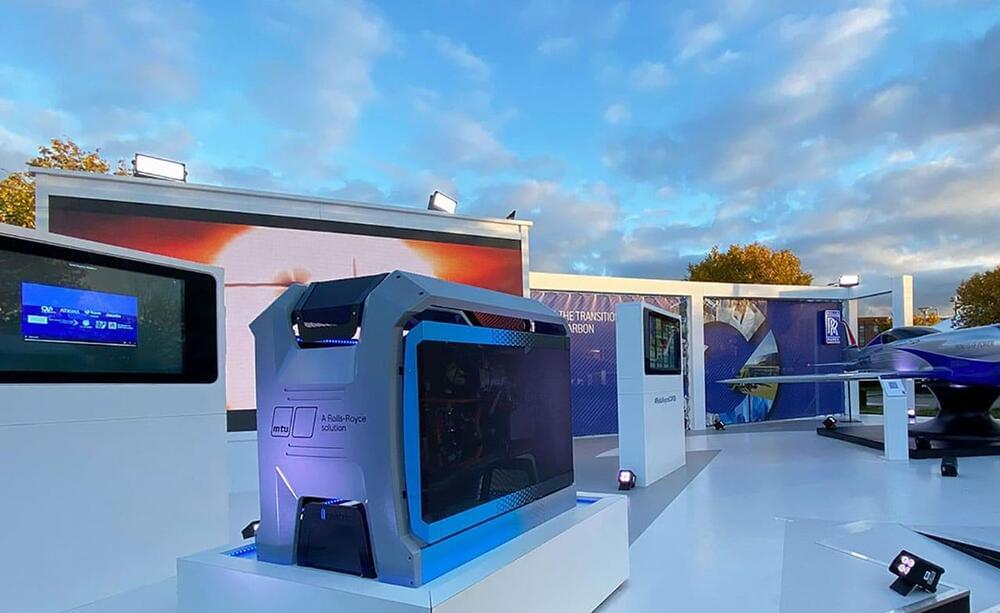
With a minimalistic design and H-shaped front panel, the new mtu hydrogen fuel cell is a complete solution for power supply in the megawatt range that will be produced in series from 2025. This modern-looking module will in the future deliver a net power output of around 150 kW – sufficient to power approximately ten homes. It can also be connected together into scalable fuel cell power plants with outputs in the megawatt range – capable of providing clean backup power for large data centers.
The fuel cell module is the result of collaboration between Rolls-Royce and cellcentric, a joint venture company set up by Daimler Truck AG and Volvo Group AB earlier this year. It is based on cellcentric’s fuel cell modules that emit nothing other than water vapor. This will enable CO2-free, climate-neutral generation of emergency power for data centers.
“Electrical generators based on fuel cells represent the next leap forward in the energy transition, both for our customers and us,” said Andreas Schell, CEO of Rolls-Royce Power Systems. “That’s why we’re investing a three-digit million amount in R&D over the next few years, and we hope that this strong commitment will encourage governments and politicians to promote and support this pioneering, extremely climate-friendly technology. When they run on green hydrogen, meaning hydrogen made using renewable energy sources, fuel cells are climate-neutral. For this reason, and also because we’re simply convinced by fuel cell technology, we also want to look into how green hydrogen can be produced cost-effectively in the quantities we need.”
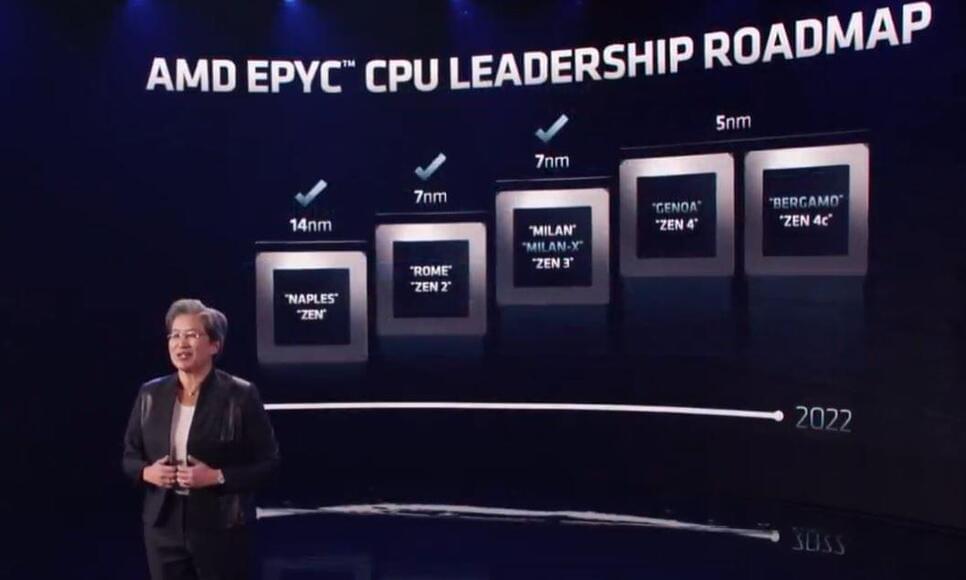
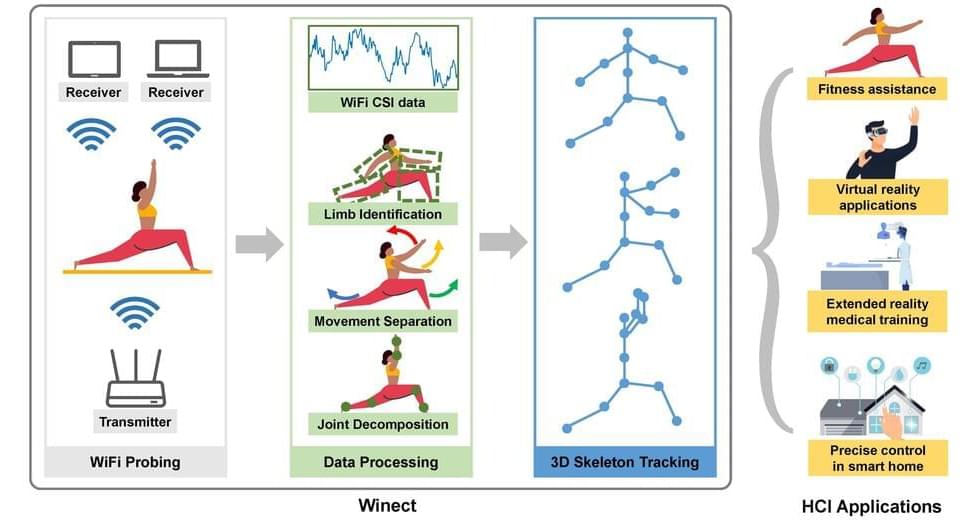
Wireless sensing devices, tools that allow users to sense movements and remotely monitor activities or changes in specific environments, have many applications. For instance, they could be used for surveillance purposes as well as to track the sleep or physical activities of medical patients and athletes. Some videogame developers have also used wireless sensing systems to create more engaging sports or dance-related games.
Researchers at Florida State University, Trinity University and Rutgers University have recently developed Winect, a new wireless sensing system that can track the poses of humans in 3D as they perform a wide range of free-form physical activities. This system was introduced in a paper pre-published on arXiv and is set to be presented at the ACM Conference on Interactive, Mobile, Wearables and Ubiquitous Technologies (Ubi Comp) 2,021 one of the most renowned computer science events worldwide.
“Our research group has been conducting cutting-edge research in wireless sensing,” Jie Yang, one of the researchers who carried out the study, told TechXplore. “In the past, we have proposed several systems to use Wi-Fi signals to sense various human activities and objects, ranging from large-scale human activities, to small-scale finger movements, sleep monitoring and daily objects For example, we proposed two systems dubbed E-eyes and WiFinger, which are among the first work to utilize Wi-Fi sensing to distinguish various types of daily activity and finger gestures.”

Consider the room you are sitting in: From the injection-molded plastic of a computer mouse to the synthetic carpet fibers on the floor, you are surrounded by petroleum-derived products in your daily life. But what if there is a better way to produce the products we depend on with cleaner and greener materials? Biomanufacturing offers a way to use materials from nature to create the items we use every day.
Checkerspot, a materials innovation company, is rethinking products from a molecular level. It is optimizing microbes to biomanufacture unique structural oils found in nature. The company has taken the technology it has built and turned it into a platform to bring us closer to a post-petroleum future.
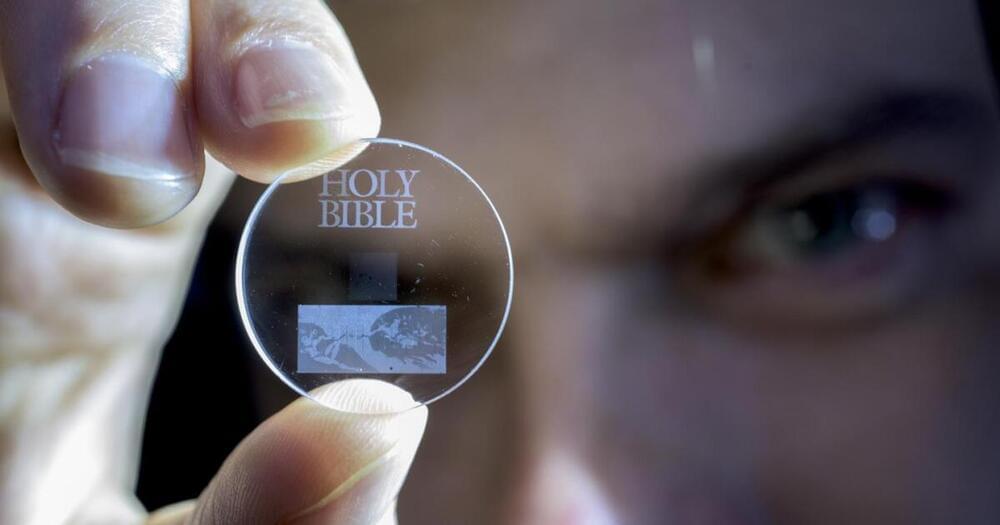
Scientists at the University of Southampton have achieved a data storage breakthrough, offering intense density and long-term archiving capabilities. With this new data storage, you can easily store up to 500 terabytes on a single CD-sized disc. Whether the data is information from museums and libraries to a person’s DNA records, it can store it all and much more!
This technology is known as five-dimensional (5D) optical storage and was first demonstrated back in 2013 when scientists were successful in using it to record and retrieve a 300-kb text file. It might not seem like much, but at that time, it was a breakthrough in data storing technologies just like how floppy discs played the same part some thousand years ago.
The data is written using a femtosecond laser which emits short but powerful pulses of light, forging tiny structures in glass that are measured in nanoscale. These structures contain information on the intensity and polarization of the laser beam in addition to the 3D space, hence it is referred as 5D data storage.

